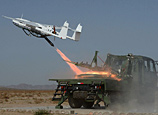
BEIJING, June 21 (Xinhua) -- With growing high-level contacts between China and Russia, the countries' economic cooperation is expected to gather steam amid global economic woes.
Vice Premier Zhang Gaoli on Wednesday arrived in Russia, where he is scheduled to meet with top leaders and businessmen, as well as attend the St. Petersburg International Economic Forum to discuss solutions for pressing global issues.
China would like to work together with Russia to maximize the potential for bilateral economic cooperation and translate the political relationship into results, Zhang said Thursday.
His visit is a swift follow-up to a summit held in Moscow between President Xi Jinping and his Russian counterpart Vladimir Putin in March that saw the signing of a number of agreements in various sectors.
"Frequent contact between the two countries' leaders has created a political foundation for further economic cooperation," noted Wu Hongwei, a researcher with the Institute of Russian, Eastern European and Central Asian Studies under the Chinese Academy of Social Sciences (CASS).
China is currently Russia's largest trading partner. Two-way trade between the two countries reached 88.2 billion U.S. dollars in 2012.
But in the first five months of 2013, bilateral trade fell 2.6 percent year on year, with Chinese imports from Russia dropping 15.2 percent.
The drop was mainly caused by an economic slowdown in China that has sapped demand for commodity imports, according to Zhu Feng, deputy director of the Center for International and Strategic Studies at Peking University.
"China's economic restructuring calls for deeper and wider cooperation between the two economies," he said.
Currently, Sino-Russian economic cooperation is mainly focused on the energy sector, as China -- the world's biggest energy consumer -- is a convenient export destination for Russia's abundant oil and gas supplies.
During Xi's March visit, both sides agreed to increase electricity and natural gas exports from Russia to China, as well as join efforts in oil-gas exploitation and refinery construction.
The increasing energy cooperation, while widely welcomed, has prompted concerns about the concentration of both sides' cooperation structure.
"Sino-Russian cooperation, which is currently over-reliant on energy, has huge potential in agriculture, new energy, aviation and the military, which will likely become a new impetus for future development," said Wu.
During their stays in Russia, both Xi and Zhang pledged to move cooperation beyond the energy sector.
"The friendly political climate has helped lay a foundation, but the advancement of economic cooperation will hinge on the role of the market," said Zhu, adding that both sides should boost social and people-to-people exchanges to foster mutual trust.
China and Russia aim to bring total bilateral trade to 100 billion U.S. dollars in 2015.
















 Rehab helps prepare for life after addiction
Rehab helps prepare for life after addiction


![]()
